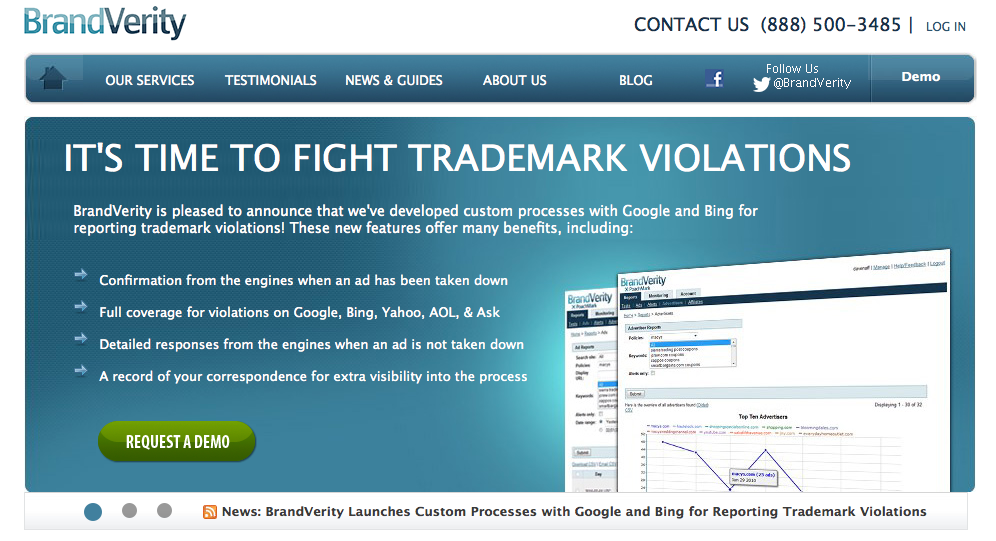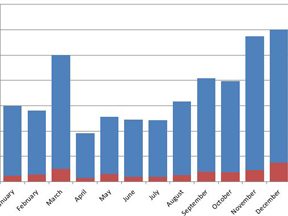In affiliate marketing, affiliates often utilize the same marketing tools as their retailers. The challenge for retailers, then, is to ensure that affiliate efforts do not conflict with the retailers’ internal marketing campaigns. Overlapping efforts are perhaps most visible within paid search.
It is not uncommon for affiliates to put together pay-per-click campaigns to drive traffic to retailers. They go through the same process as a retailer’s internal search team. Affiliates build keyword campaigns, set and optimize bid budgets. For them, search is an arbitrage opportunity. The affiliate will pay for clicks using their own capital, and look to profit on commissions.
Benefits of Search-oriented Affiliates
But there are many benefits to working with affiliates that specialize in search marketing. First of all, affiliates are typically not interested in competing head-to-head with retailers, if even those efforts may overlap. Retailers tend to have deeper pockets and the ability to go after high-trafficked, high-conversion keywords. For affiliates to profit, they need to optimize their own budgets by identifying high-converting, long-tail keywords, which typically drive lower sales volume and, therefore, may not be the main objective of a retailer’s internal search team.
For example, while the retailer may focus its search efforts on new and bestselling products, affiliates might focus their search efforts on less popular products that sell in lower quantities. By enabling and encouraging affiliates to pursuing long-tail keywords, retailers are positioned to capture incremental revenue. Plus, retailers benefit from the search savvy of these affiliates. Since search affiliates are funding their own campaigns, they are often experts at optimizing spending.
“By enabling and encouraging affiliates to pursue long-tail keywords, retailers are positioned to capture incremental revenue.”
There are also benefits to partnering with trusted affiliates to bid on the same keywords. In doing so, it is possible to use more real estate on the search results page, blocking out competitors. For this strategy to be successful, it is important to have open and direct lines of communication with the affiliate. Bid strategies and ceilings need to be agreed to, as well as landing page strategies. Search engines typically do not show more than one ad per domain, so retailers may assist affiliates in developing relevant landing pages on the affiliate’s domain, which would then drive traffic to the retailer.
Trademark Bidding
Conversely, there are search strategies that retailers need to utilize. For example, consider the practice of trademark bidding, where affiliates create search campaigns centered on variations and misspellings of the retailer’s brand and domain. If the retailer does not have an internal search team, then allowing affiliates to fill that need is a good strategy. Affiliates will block out competitors bidding on the retailer’s brand, and the retailer doesn’t have any upfront cost as it will only have to pay commission on completed sales. Affiliates carry the burden of paying for clicks.
“If a merchant is not bidding on its own terms in paid search, I highly recommend finding a trusted affiliate to fill that shelf space. Not having representation leaves the space ripe for competitors,” explains Greg Hoffman, of Greg Hoffman Consulting, an affiliate marketing management agency. “Plus, if you find the right affiliate, it will reinvest those funds into long-tail keywords that bring in solid new customers.”
However, if the retailer does have an internal search team, then the affiliate may not be adding any value by bidding on trademarks. That’s because retailers invest money in building brand recognition. There is ad spending associated with brand building. If a consumer searches the retailer’s brand, that search is likely a result of the retailers own branding efforts. Any resulting sales should be attributed to the brand-building channel. If an affiliate is bidding on the brand and driving traffic to the retailer’s site, it could push the retailer’s own ad out of the search results. Or, if an affiliate is bidding on the brand and driving traffic to the affiliate’s own site, it could dilute the brand.
How to Monitor Trademark Bidding?
It is challenging to monitor the search engines for affiliates that are bidding on trademarks. Retailers can do this manually by conducting searches on their trademark terms on different search engines, and then using a tool such as Live HTTP Headers to see if there are any affiliate redirects through a tracking link associated with each ad. The retailer would see the ID of the offending affiliate embedded in the tracking link. However, there are many ways for affiliates to avoid discovery via manual monitoring.
“(Retailers) can monitor their keywords in Google, Bing, and Yahoo for trademark violations but they would have to check morning, afternoon, night, and overnight, at least three times weekly, including a weekend. They will still miss ads that are geo-targeted. Some affiliates will not allow ads to show in your region so they don’t get caught,” Hoffman explains.
The manual monitoring approach may work in the short-term for smaller retailers, however it can become tedious and ineffective. Another solution would be to hire a trademark monitoring service. Hoffman uses BrandVerity to both monitor trademark violators and to ensure compliance with affiliates whom he’s partnered with.
“I’ve used BrandVerity for several years to monitor affiliates paid search on all of my merchants. I want to make sure the exclusive affiliates are fulfilling their end of the deal and watching others to ensure their compliance. Any affiliates not on the approved lists for trademark or trademark plus coupon terms will be contacted immediately to cease all paid search efforts or face termination and voided sales,” says Hoffman.
The strategy for working with search affiliates will differ among retailers. A lot of it will depend on how extensive and developed internal search efforts are, and on how strong the brand is. The best strategy, though, is to treat trusted search affiliates as an extension of internal marketing efforts to avoid duplicate efforts, wasted spending, and brand dilution.






